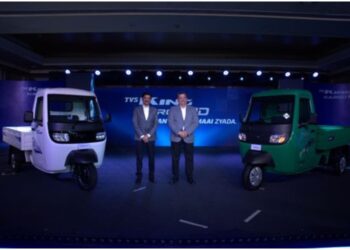Over the past few years, the automotive industry has undergone a huge transformation with the evolution of electric vehicles (EVs). As the world moves toward greener and more sustainable modes of transportation, the insurance industry is also evolving to address the unique needs and challenges associated with EVs.
The rise of electric vehicles
Electric vehicles have experienced a significant surge in popularity over the past decade, driven by advancements in battery technology, environmental concerns, and supportive government policies. EVs offer numerous benefits, including lower operating costs, reduced emissions, and a quieter driving experience. As more consumers are opting for electric vehicles, the demand for tailored insurance policies that cater to the specific characteristics of EVs has increased.
Understanding EV insurance
EV insurance is designed to cover the unique aspects of electric vehicles, from their high-tech components to their advanced safety features. While the core principles of auto insurance remain the same, several factors differentiate EV insurance from traditional internal combustion engine (ICE) vehicle insurance. This type of insurance includes battery coverage. The battery is the most expensive and critical component of an EV. Various insurance policies are there to address the risks associated with battery damage, degradation, and replacement costs. In addition, as home charging stations and public charging infrastructure are integral to EV ownership, policies often include coverage for damage or theft of charging equipment.
Electric vehicles typically require specialized repair services and parts, which can be more expensive than those for ICE vehicles (internal combustion engine vehicles). Several insurance premiums reflect these potential higher repair costs, enabling individuals to avail insurance schemes for repair costs. Moreover, EVs are equipped with advanced software and autonomous driving features, necessitating coverage for tech-related issues and cybersecurity threats. Various leading EV insurance policy makers are introducing beneficial coverage schemes for handling such issues. For EV owners, range anxiety or the fear of running out of charge is becoming a common concern. Various insurance policies have also started offering enhanced roadside assistance for EVs, including mobile charging services.
Factors influencing EV insurance premiums
There exist several factors that influence the cost of insuring an electric vehicle. Vehicle value is one of them. As with any car, the overall value of the EV affects the insurance premium. High-end models with expensive batteries and advanced technology tend to have higher premiums. Moreover, the cost of replacing an EV battery, which can range from a few thousand to tens of thousands of dollars, significantly impacts insurance rates. Further, specialized repair shops and the need for specific parts can drive up insurance costs for EVs. Along with this, many EVs come with advanced safety features such as collision avoidance systems, which can reduce the likelihood of accidents and lower insurance premiums. Additionally, factors such as driving history, location, and mileage play a role in determining insurance costs for EV owners.
Trends shaping the future of the EV insurance industry
The global EV insurance industry is experiencing prominent growth due to the rise in the penetration of internet access and the growing use of mobile devices among individuals across the globe and the increase in the use of cloud-oriented software among banking firms and financial institutions. According to a report published by Allied Market Research, the market is anticipated to grow at a CAGR of 15.5% from 2022 to 2031.
Along with this, the EV industry continues to grow, the insurance industry is adapting to meet new demands. With the proliferation of telematics and connected car technology, usage-based insurance is becoming more prevalent these days. This approach uses real-time data to tailor premiums based on actual driving behavior, offering potential savings for safe and low-mileage drivers. Moreover, as more insurers enter the EV market, competition is likely to drive innovation and potentially lower premiums. Specialized EV insurance providers offer tailored policies to meet the unique needs of electric vehicle owners. Furthermore, governments of many nations are offering incentives and subsidies to encourage the adoption of EVs. These incentives are expected to extend insurance with potential discounts or rebates for EV owners.
Nonetheless, with the rising concern for sustainability, several EV insurance industries are increasingly providing exciting premiums for adopting sustainable approaches. Insurers are offering discounts to EV owners for adopting environmentally friendly practices, such as using renewable energy for charging EVs or participating in car-sharing programs.
In a nutshell, the transition to electric vehicles represents a significant shift in the automotive landscape, bringing with it new opportunities and challenges for the insurance industry. As EV technology continues to evolve, insurance policies are adapting to address the unique needs and risks associated with these vehicles, enabling consumers to make informed decisions and ensure them to get adequately protection in this new era of transportation.
Short Description: EV insurance has evolved as a beneficial service designed to provide financial aid to EV owners. It addresses unique needs such as battery coverage, specialized repair costs, and tech-related issues. Various factors such as vehicle value, repair costs, and safety features influence premiums, enabling EV owners to choose suitable policies. With the growing adoption of electric vehicles worldwide, the insurance industry is going to offer tailored policies and sustainability incentives in the coming epoch.













